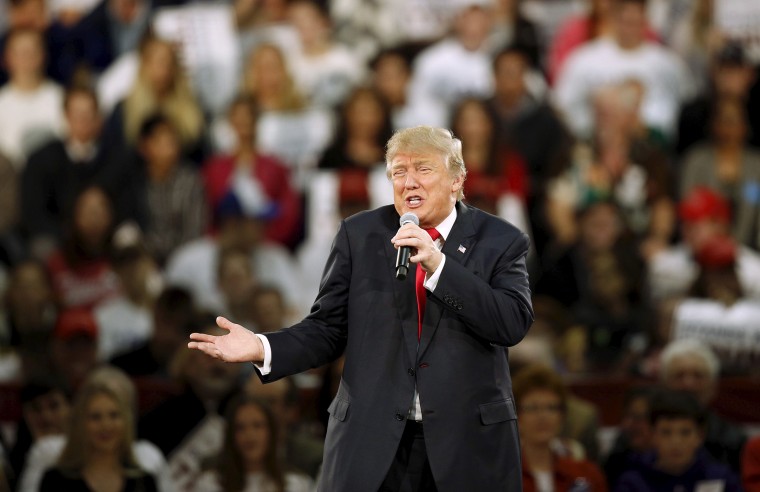About four months ago, the University of Virginia's Larry Sabato, a prominent political scientist, co-authored a
piece on Donald Trump's electoral prospects. "If Trump is nominated," the analysis said, "then everything we think we know about presidential nominations is wrong. History has shown that presidential nominations tend to follow a certain set of 'rules.'"
And in Trump's case, those rules are being challenged in ways without modern precedent. Sabato focused on some key structural and institutional constraints, but one of the "rules" appears especially important now: "[A] likely nominee needs a layered, professional organization that has been carefully constructed at the national level and in each of the early critical states."
It's important at this stage to appreciate how far short Team Trump is falling on this front. The
New York Times ran
a piece the other day that surprised me -- because while I knew Trump was blazing his own trail, I didn't fully understand the degree to which he's breaking with Campaign 101 orthodoxy.
His advisers have not revealed the existence of any pollsters on their staff or any advertising team. He has no real research operation to examine his own vulnerabilities or those of his opponents and, based on Federal Election Commission filings, little in the way of a voter contact operation to identify and turn out his supporters. [...] [He] has conspicuously opted against spending in conventional ways that could fortify his lead or harm weak rivals, discarding the playbook that winning candidates have used for many decades.
A
Washington Post article added over the weekend, "[J]ust as Trump doesn't spend money on pollsters or focus groups, the campaign has yet to purchase databases of potential voters, a key organizing tool used by most campaigns. Instead of buying such a tool from a private contractor, the campaign has compiled its own database using contact information from every rally attendee, either when they registered online or showed up at the door."
Not to put too fine a point on this, but as national campaign strategies go, this appears to be bonkers.
We're not talking about exotic, outside-the-box expenditures. Bakers understand that to make a good loaf of bread, they're going to need some flour. Guitarists understand that to perform a good song, they'll need a set of strings. And modern, competitive presidential campaigns -- in both parties -- understand that to compete nationally and in early nominating contests, candidate invest in some basic elements.
Team Trump simply isn't making these investments, evidently because the candidate and his aides believe they don't have to.
At a certain level, Trump and his backers may not see any real value in traditional campaign "rules." Indeed, breaking those rules may serve as a point of pride. It's a "movement" in which the Old Way is being replaced with the Trump Way. And if the polls are correct, why mess with success?
The answer, or at least one possible answer, is that the race is entering a more difficult phase, and if Trump lacks necessary infrastructure, he won't be able to capitalize on his dominant position in the polls.
Over the weekend, the
Washington Post highlighted a middle-aged Iowa couple, Bonnie and Randy Reynolds, who've bought "Make America Great Again" hats, put on the Trump T-shirts, and who are ready to support the GOP candidate "100 percent."
So, obviously, the couple plan to caucus for Trump on Feb. 1? "We're going to see," Reynolds said. "With kids and grandkids and all this, it's kind of hectic.... We'll look into it. If our time is available, then yeah, maybe we'll do it. Maybe. We'll have to see."
A meaningful campaign infrastructure takes shape in order to make sure folks like Bonnie and Randy Reynolds show up at the campaign rally and at the caucuses.
Trump's rivals have tried and failed to find ways to slow the frontrunner's momentum, but perhaps the more pertinent question at this point is whether Trump has found ways to undermine his own chances by choosing such a deliberately nontraditional path.
